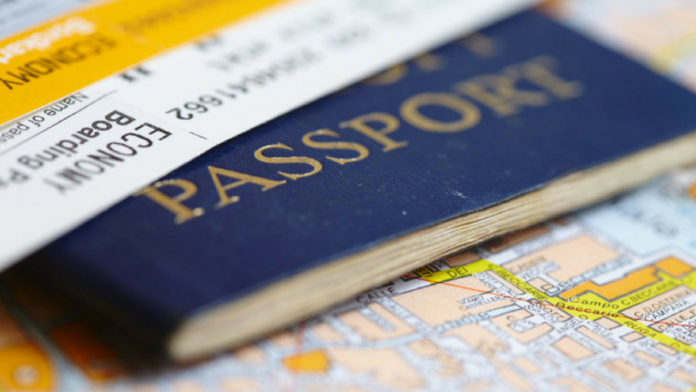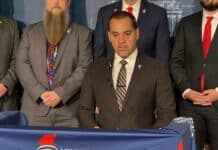MN House GOP Eager to Pass Bill
St. Paul, MN – The 2017 session kicks off with a return of Real ID in hopes of bringing Minnesota in compliance with federal law.
With some GOP members seemingly in a rush to pass this legislation, the latest Real ID bill has already cleared two House committees.
Rep. Dennis Smith, the author of the bill, leads the group of GOP members who are eager to bring Minnesota into compliance with the federal Real ID laws.
On Tuesday, the Real ID bill faced the Civil Law and Data Practices Policy Committee. In a hearing that lasted over an hour, the committee voted to advance the bill.
The bill passed the House Transportation and Regional Governance Policy Committee with a 7-6 vote. Seven GOP members of the committee voted in favor of the bill. Six Democrats voted against it. Rep. Cindy Pugh (R-Chanhassen) and Rep. Eric Lucero (R-Dayton), leading House opponents of Real ID, were notably absent for the vote. Alpha News reached out to Rep. Pugh and Rep. Lucero for comments, but neither responded prior to publication.
The Transportation and Regional Governance Policy Committee held a hearing for the bill on Wednesday where it advanced with an 8-6 vote.
The current Real ID compliance deadline is October 1st, 2020. With Minnesota being one of several states left that are not in compliance with the law, supporters are eager to get a bill passed that would allow the state to catch up before stricter ID requirements are enforced.
Opponents of the bill are concerned with the threat to privacy. If Minnesota were to become compliant with the law, this would allow the federal government to collect significant amounts of data that they are currently not entitled to.
Rep. Smith feels that his bill helps solve the issue of data collection by offering two options. The first is a Real ID compliant ID, allowing Minnesotans to continue to board planes and enter military bases before the 2020 cut-off. The other option is a non-compliant ID for those who want to opt-out of the federal ID system and keep their current IDs.
While this sounds like a potential compromise, some opponents are quick to point out that the solution is deceptive. Twila Brase, president of Citizens’ Council for Health Freedom, was quick to point out the fault of the two-track system in her testimony during the Civil Law and Data Practices Policy Committee hearing. She explained that once Minnesota becomes compliant with Real ID, this requires the Minnesota motor vehicle licensing system to share all data on anyone in the system. The federal government would still control things like license design and other requirements. Brase says there would be no opt-out option if the bill becomes law.
Other opponents to the bill are concerned with certain provisions that would inhibit unauthorized immigrants from receiving licenses. Also in the Civil Law and Data Practices Policy Committee hearing, there were multiple testimonies from immigrants and groups associated with immigrants regarding the language of the bill. Legislators faced similar concerns while trying to resolve the Real ID issue last year.
The Senate has yet to put forward a bill regarding Real ID.
Subscribe to Alpha News for more updates on Real ID and other legislative news.











